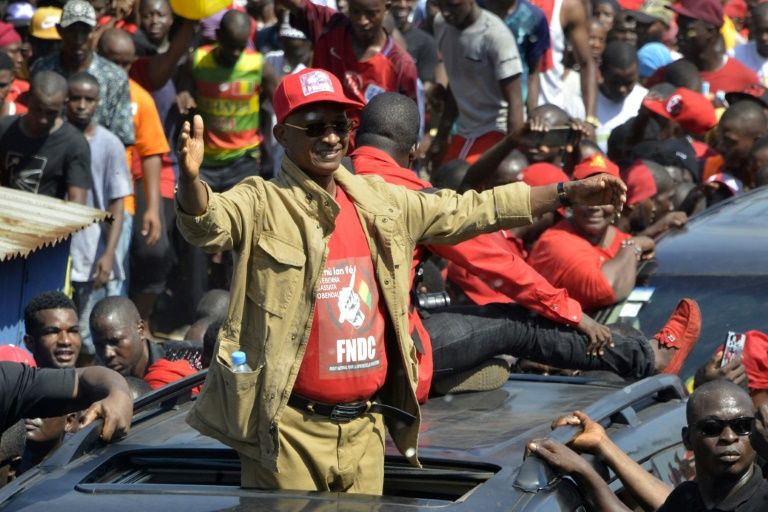Guinea’s manin opposition leader, Cellou Dalein Diallo, as one might expect, declared himself the winner of the October 18 presidential election; but the strategy of the candidate of the UFDG gives rise to fear of bloody clashes if the CENI takes the opposite course.
Let it be taken for granted, the risk of unrest is very high in Guinea. Firstly, because the main rival of outgoing president Alpha Conde campaigned on the theme “This is the Hour.” A slogan that he then made explicit with a forewarning tweet: “2020 is not 2010, let alone 2015. We are ready!” To finish, Cellou Dalein Diallo said, especially in front of over-excited supporters, to have emerged “victorious in this election in the first round.”
It was Monday, early in the afternoon. An announcement immediately greeted with fervor by the militants of the Union of Democratic Forces of Guinea (UFDG) in the streets of Conakry. Then the security forces dispersed the crowd using tear gas.
Likewise, the former Prime Minister under Lansana Conte (1984-2008) accuses, on his Twitter account, the security forces of having led to “the death of three young boys” by firing live ammunition at his supporters, who were “peacefully celebrating (his) victory.”
A few hours earlier, Naby Youssouf Kiridi Bangoura, the spokesperson for the ruling Rally of the People of Guinea (RPG), denounced “the anti-republican and anti-democratic attitude” of Cellou Dalein Diallo who should have, according to the presidential majority movement, refrain from proclaiming results, which is a mission devolved to the Independent National Electoral Commission (CENI).
In any case, the RPG and UFDG are firing broadside at each other, especially on social networks. To win the battle of public opinion, both sides brought out heavy artillery. Yet the current tenant of the presidential palace, just after fulfilling his civic duty, called “for calm, discipline and total transparency.” This Tuesday, Alpha Conde repeated that “Guinea is one and indivisible.”
For his part, Augustin Matata Ponyo Mapon, the head of the Observation Mission of the African Union (AU) assured, in a preliminary report, that “all Guineans, fulfilling the conditions and who went to the places to vote, were able to exercise their right.” Consequently, his counterpart from the Economic Community of West African States (ECOWAS), José Maria Neves, called on everyone “to respect the results of the ballot box.”
However, convinced of his triumph, Cellou Dalein Diallo recently called on “(his) compatriots who love peace and justice to remain vigilant and mobilized to defend this victory for democracy”.
The latter has chosen to participate in the presidential election, contrary to the line of the National Front for the Defense of the Constitution (FNDC), a collective of opposition parties and civil society organizations that tried to block Conde’s third term. This political coalition had even boycotted the Legislative Assembly and the constitutional referendum.
However, the UFDG’s gambit could be a winner. In 2012, Macky Sall won the Senegalese presidential election in the second round ahead of Abdoulaye Wade who was seeking, against all odds, a third presidential term. Until then, Guinea, which became independent in 1958 has not yet experienced democratic change. In 2020, the awakening of old demons is haunting all minds.
ID/cgd/fss/abj/APA


